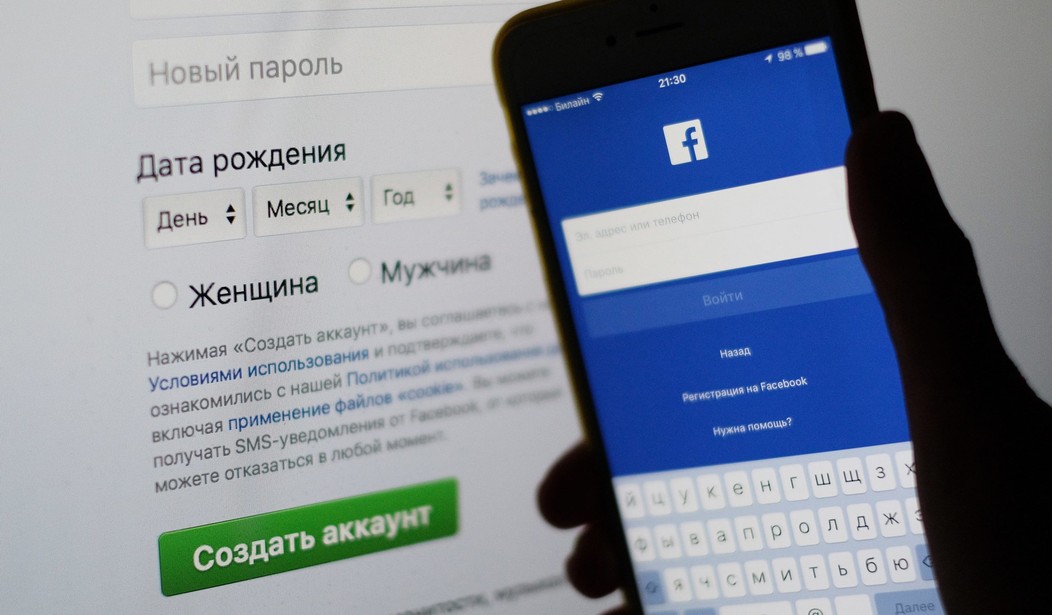A majority of the Facebook ads paid for by a Russian “troll farm” ostensibly to divide Americans actually made their impact after the November 2016 election, a Facebook spokesman revealed on Monday.
Only 44 percent of “total ad impressions (number of times ads were displayed) were before the US election on November 8, 2016,” Elliot Schrage, Facebook’s vice president of policy and communications, said in a statement. A full 56 percent of the total impressions came after the election.
The ads reached an estimated 10 million people in the U.S., according to Facebook’s modeling. About 25 percent of the ads were never shown to anyone, because advertising auctions are designed to allow ads to reach people based on relevance, so some ads never reach anyone.
Finally, Schrage reported that most of the ads were cheap. While they were purchased in Rubles (Russia’s currency), the Facebook vice president laid out their relative cost in dollar terms. “For 50% of the ads, less than $3 was spent; for 99% of the ads, less than $1,000 was spent.”
This means that the Russian Facebook ads had their strongest impact after the election, not before it. Furthermore, while they reached 10 million Americans, they only spent up to $150,000. In 2016, digital ads were a $7.2 billion industry, and it has been estimated that at least $570 million was spent on political ads on Facebook and Google alone.
While the Russian interference is harrowing, the amount of money spent and the impact overall represented a drop in the bucket when it comes to political advertising on social media.
Furthermore, the ads pushed multiple “divisive social and political messages across the ideological spectrum, touching on topics from LGBT matters to race issues to immigration to gun rights,” Schrage added.
While many liberals jumped on the Facebook ad story as evidence of alleged Russian interference to boost the Donald Trump campaign, the ads were not all on Trump issues, and many explicitly supported issues on the other side — such as Black Lives Matter and Hillary Clinton.
Indeed, Sen. Richard Blumenthal (D-Conn.) laughably suggested that the Russian troll farm behind these ads could not have known to target the cities of Ferguson, Mo., and Baltimore, Md., for Black Lives Matter-themed ads. He said the only way this group would be able to achieve the laughably tiny impact it had on the 2016 election would be if it were in “collusion” with the Donald Trump campaign.
“There is speculation, to be absolutely blunt, that they received that help from the Trump campaign, which had a great deal of digital information to enable its own targeting,” Blumenthal said, revealing an utter misunderstanding of digital media strategy.
Both Blumenthal and CNN’s Wolf Blitzer used the term “micro-targeting,” which is actually not what these ads used. Furthermore, they seemed to think that social media advertising is something only specialized experts could do, whereas reality platforms like Facebook have a very user-friendly interface that requires some training, but nothing beyond the reach of a large Russian company.
This new information from Facebook — that the ads were small-time, reached only 10 million Americans, and mostly ran after the election — revealed that not only was it exceedingly unlikely the Trump campaign had anything to do with the ads, but the campaign had no incentive to be involved with them, either.
The impact of a Russian troll farm on American Facebook accounts is concerning, and Facebook announced new verification measures to prevent such events in the future.
Furthermore, Schrage’s statement expounded on the value of free political speech. “We are dedicated to being an open platform for all ideas — and that may sometimes mean allowing people to express views we — or others — find objectionable,” the Facebook VP wrote. “This has been the longstanding challenge for all democracies: how to foster honest and authentic political speech while protecting civic discourse from manipulation and abuse. Now that challenge has taken a new shape, it will be up to all of us to meet it.”
Despite the seriousness of this Russian interference in American civic life, the interference likely had minimal to zero effect on the 2016 election, and very little effect on the vast digital market that is Facebook.
Democrats like Blumenthal who try to make every news item tie back to the Trump-Russia narrative seriously need to examine their premises. His hysteria hyped this small-potatoes effort into a grand narrative which becomes more tenuous by the day. At some point, Democrats need to stop trying to make Trump-Russia happen, because it’s not going to happen.









Join the conversation as a VIP Member